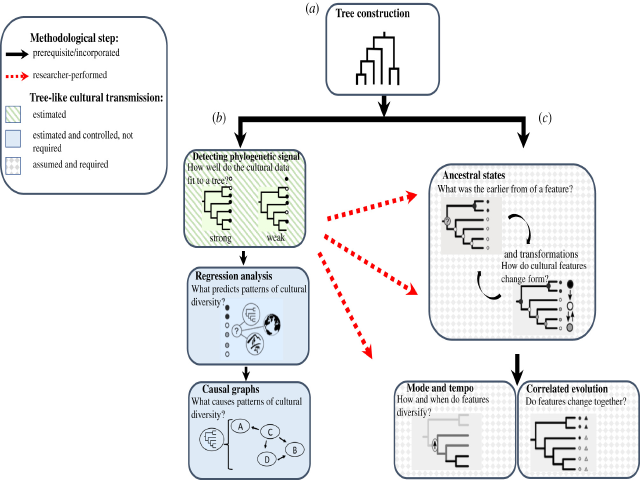The uses and abuses of tree thinking in cultural evolution.

Authors:
Citation:
Details:
Published: 5 May, 2021.
Download:
Abstract:
Modern phylogenetic methods are increasingly being used to address questions about macro-level patterns in cultural evolution. These methods can illuminate the unobservable histories of cultural traits and identify the evolutionary drivers of trait change over time, but their application is not without pitfalls. Here, we outline the current scope of research in cultural tree thinking, highlighting a toolkit of best practices to navigate and avoid the pitfalls and ‘abuses’ associated with their application. We emphasize two principles that support the appropriate application of phylogenetic methodologies in cross-cultural research: researchers should (1) draw on multiple lines of evidence when deciding if and which types of phylogenetic methods and models are suitable for their cross-cultural data, and (2) carefully consider how different cultural traits might have different evolutionary histories across space and time. When used appropriately phylogenetic methods can provide powerful insights into the processes of evolutionary change that have shaped the broad patterns of human history.